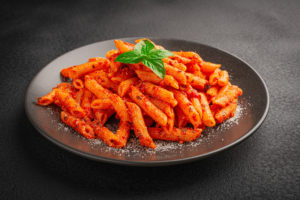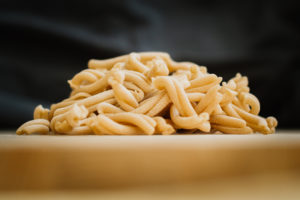Italian food is popular the world over, from takeaway pizza on the high street to high-end dining in New York, London and Rome. In 2020, the UK imported around £585 million worth of pasta, and in Oxford alone, 49% of people ate pizza at least once a week in 2018.
So there’s no denying we love the stuff, but do you know where the names of some of your favourite dishes originated from?
In Italian, the folded pizza dish Calzone means a ‘stocking’ or a ‘trouser leg’ and is even ‘hemmed’ around the edge.
Ciabatta loaves are a popular sandwich choice, but how would you feel if you were eating your BLT out of your indoor footwear? ‘Ciabatta’ actually means ‘slipper’

A spicy dish, too hot for some, Pasta Arrabbiata is so named because arrabbiata means angry in Italian. All those chillies must heat up the blood!
Next time you tuck into a Margherita pizza, you can regale your dining companions with the tale of its namesake, Margherita of Savoy, Queen of Italy. According to a popular legend, the royal couple visited Naples in 1889. Queen Margherita was bored with her traditional French gourmet diet, and when she saw the locals eating large flatbreads, she tried one and liked it so much that she summoned the most famous pizza-maker in Naples, Raffaele Esposito, to bake a variety of pizzas. Her favourite was the one with tomatoes, mozzarella slices, and basil, displaying the colours of the Italian flag, and it was so named after her.

Strozzapreti is a pasta with a rather interesting etymology – its name means ‘priest strangler’ or ‘priest choker’!! The origin of the name is disputed but it could be attributed to their thick, twisted shape. This egg-free recipe is tougher to chew, so much so that priests, who were once stereotyped as rather gluttonous individuals, risked choking if they ate at speed. Or simply that the dough has to be twisted to the point of strangulation to obtain its shape
Still hungry?
Want to learn more about food?
Check out our Hospitality and Catering qualifications
